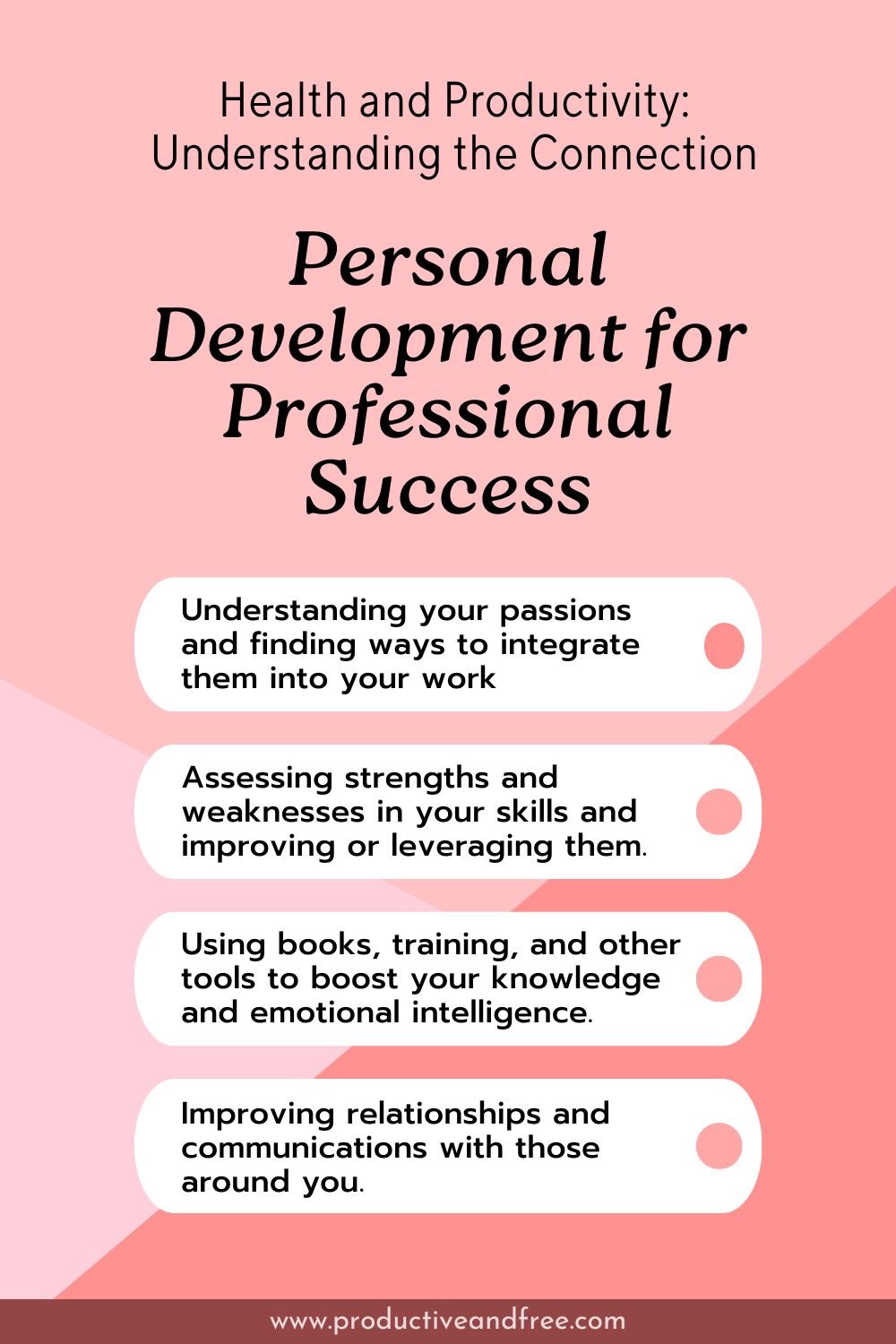Many people long to have a successful career, often investing long hours, extra training, and additional work. However, there is a better way to enhance your career and productivity. Improving mental and physical health can boost your personal confidence and professional relationships.
Rather than adding more work responsibilities, consider the connection between health and productivity. Taking steps in the right direction has plenty of benefits. But poorly managed stress and other health challenges can harm your career.
How Work-Related Stress Can Harm You and Your Career
Stress at your job can escalate until it impacts your mental health, which can impair how well you perform your job. For example, when work stress exacerbates an individual’s depression, it can impair their cognitive performance by up to 35% and their physical aptitude by 20%. Long-term job stress can also cause burnout, which will cause you to be less engaged with your job.
After the pandemic, employers became more aware of the mental health challenges that their employees faced. Unfortunately, there is a disconnect here. Employers feel they are doing a better job supporting this area than employees believe, especially in areas like access to mental health support. There is also still a stigma associated with these issues.
In light of this, business leaders should provide tools to support the mental health of their staff, including providing mental health screenings, supplying mental health resources, or delivering services for a reduced fee from certain professionals.
Delivering these tools helps remove the stigma of mental health challenges. Take advantage of these offerings by:
● Seeking out resources, such as a therapist. You can also reach out to loved ones or find help from religious leaders in your community. Suicide and crisis hotlines let you anonymously place a call if you are in trouble.
● Using stress management techniques, such as breathwork and meditation or prayer. Exercise is also an excellent way to relieve stress. Pick something that you enjoy that is approved by your doctor.
● Doing activities that help you cope, like journaling, painting, or crafts. They can also include healthy life choices, such as eating nutritious foods and refraining from too much caffeine.
Work-related stress, however, is not just limited to the office. Remote and hybrid workers can also struggle with boundaries and other challenges.
Managing Stress When You Work From Home
Remote workers can also suffer undue amounts of stress. You can also manage burnout when working from home by taking simple steps that help you achieve a better work-life balance.
One of the most important is to set boundaries around your work. First, set up a dedicated work area. Be sure to make sure the area is well-lit. Do yourself a favor by investing in an ergonomic chair to properly support your back. That can also go a long way to reducing your stress. Finally, be sure your work area has some fun personal effects to encourage you while you work.
Next, allot a percentage of your time as working hours. If you need to work overtime, use the judgment you would when at the office. Just like at work, take lunch hours and stretch breaks.
At home or work, managing stress is a key part of your personal development.
Personal Development for Professional Success
We all know that professional development helps people climb the corporate ladder, but personal development is also integral to building the confidence necessary for success. Stress management skills are only one part of the equation.
Personal development requires introspection and action. In terms of your career, this means a few practical steps:
● Understanding your passions and finding ways to integrate them into your work.
● Assessing strengths and weaknesses in your skills and improving or leveraging them.
● Using books, training, and other tools to boost your knowledge and emotional intelligence.
● Improving relationships and communications with those around you.
That last one might be the most difficult. Engaging with colleagues, clients, and vendors can involve conflict and raise stress levels. What can you do about it?
Strategies to Improve Your Social Interactions
Several unexpected factors impact your professional success and impact your social interactions. Many of these can make or break first impressions or affect work relationships. These include:
● Your appearance: Looking good and dressing professionally helps you exude confidence. The right attire positively impacts your mental and physical abilities and may make you feel better equipped to solve problems and be more creative. It also improves your professional relationships, helping you network and impress people who can help your career.
● Body language: A firm handshake and good posture are the calling cards of confidence when meeting new people. Slouching or hunching your shoulders implies low self-esteem, so work to remedy this. Keep your head straight and shoulders back but relaxed to maintain good posture when meeting others.
● How you communicate: In a day and age when slang and words like “um” or “like'' are so prevalent, it’s an asset to speak clearly and professionally. Proper and clear communication is more effective and influential.
● Proper self-care: The benefits of self-care show up in your professional relationships. Taking time for yourself helps you reduce stress, improve your appearance, and build your self-esteem as you take the time to value yourself.
Attention to these details may take some time, but it will be well worth the effort and will go a long way to improving your professional relationships.
As you can see, improving your physical and mental health can make you more productive and help your career flourish. To avoid burnout, learn to manage your stress properly and invest time in personal development. When done together, these steps build your relational skills and establish your journey to success.
Katie Brenneman
Katie Brenneman is a passionate writer specializing in time management, marketing, and education-related content. When she isn't writing, you can find her with her nose buried in a book or hiking with her dog, Charlie. To connect with Katie, you can follow her on Twitter.
Pin or save this post for later!
Share in the comments below: Questions go here


























![One Page Media Kit [A] - Navy Blue](https://images.squarespace-cdn.com/content/v1/5849ea99ff7c5026f7bfdc54/1674690328865-341R6EI9WBSEY2RKRDEM/59.jpg)
![One Page Media Kit [B] - Navy Blue](https://images.squarespace-cdn.com/content/v1/5849ea99ff7c5026f7bfdc54/1674704094394-SDRNSKWBM03DK2Y5094N/60.jpg)





